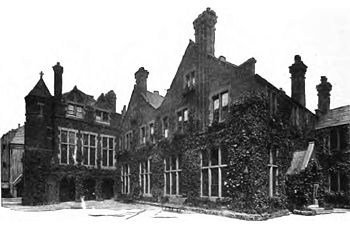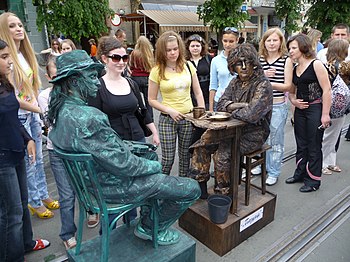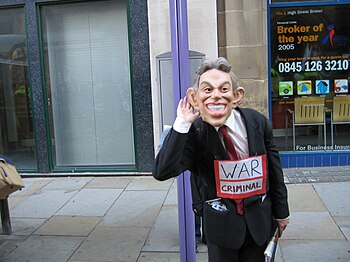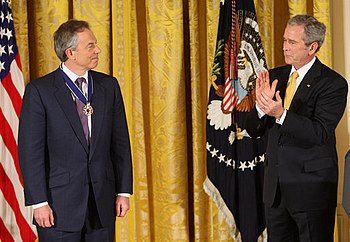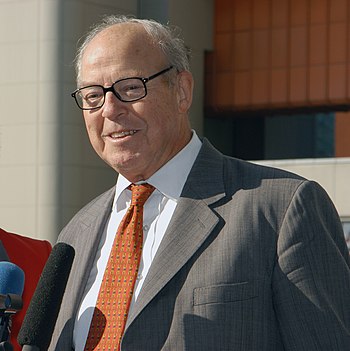| Dwight D. Eisenhower (Photo credit: Wikipedia) |
| Ronald Reagan. Chuckling from the grave? (Photo credit: Wikipedia) |
| Ronald Reagan's casket, on a horse-drawn caisson: BUT NOT YET DEAD? (Photo credit: Wikipedia) |
| The seal of the U.S. National Security Agency. credit: Wikipedia) |
| Milton Friedman (Photo credit: Wikipedia) |
I finally got to see the ground-breaking film Citizen Four, made by Laura Poitras
about Edward Snowden, and those fateful days when he sought and found friendly journalists he believed he could
trust to release the documents he was determined the world should see. These
documents revealed for the first time that the National Security Agency in the
United .states is collecting virtually every phone call or communication made by anyone to anyone else, anywhere, and storing it for later use --- a level of
surveillance that no one had any idea was being undertaken, and one for which
no citizenry anywhere has ever given permission.
Following the excellent film, which showed Snowden to be a
remarkably self-composed young man of only
29, eloquent and firm in his conviction that this information had to be made
public even if it meant that he himself would be pilloried and pursued possibly
for the rest of his life --- four local experts on surveillance, encryption,
anonymity, and human rights made presentations about the dangers facing our
society unless we are able to rein in these officials and politicians who have
stoked up fears of terrorism as a means of pushing through their nefarious
schemes to control everybody.
I did not disagree with anything these people said, but I
was still left with an ambiguous feeling about the whole evening.
I was brought up in a social democratic society in the
1930-40s, a society which, for fourteen years elected and re-elected every
three years a government devoted to the welfare of its citizens. Those of us
who supported that government, and the Labour movement that put it into power,
did not have this currently fashionable idea that the government is a beast
that is out of control. On the contrary, there was among us a recognition that,
if what we want is a society equalized in its incomes and opportunities for
everyone, then the only institution capable of achieving that equalization is
the government. This was very much the same attitude that motivated the
Rooseveltian New Deal in the United States, providing an ethic which basically
held solid through the war years, and even, in the US, through the reign of the
conservative-minded Dwight Eisenhower. Similarly, such an ethic held sway where
I was brought up throughout the war and after, and when I left that country in
1950, the year after the election of the first Conservative government in
twenty years, there were said to be only four registered unemployed in the
entire country.
The idea that the government is not the solution, but the
problem was first enunciated by the half-barmy failed actor, Ronald Reagan, whose idea of the economy was
described once by George Bush, snr, as “voodoo economics.” I can still remember the dismay I felt as I
listened to a recital of the cuts that Reagan made to the United States
government, slashing this and that, putting into the dustbin many of the
programmes that had been built to support the poorest in American society.
This was the beginning of the triumph of unrestricted
capitalism. Reagan’s view of government was gleefully seized on by the large
phalanx of capitalists and the “experts” that they hired from academia. Naomi
Klein, in her superb book The Shock
Doctrine has documented the
influence obtained in the following decades by the so-called “Chicago boys”, a
flood of economists educated by Milton Friedman at the University of Chicago, to
believe the reactionary, backward and until then largely discarded idea that
the capitalist economy --- which everyone has to admit is the system best
capable of producing goods --- is best left to itself, obeying only the dictates
of the market. This was a shorthand way of saying that the economy should be handed
over to speculators, because these are the people who dominate the fluctuations
of the market.
We have since had graphic demonstration of the excesses to
which this doctrine has led, by 2008 throwing the entire global economy into a
state of crisis from which only massive help from the public purse rescued it
--- and by massive I mean trillions of dollars, poured into supporting the
biggest banking systems ever created, the famous institutions that have since
been described as “too big to fail.” If there had been a countervailing system
of thought in defence of the public, these trillions could have been expected
to have signalled a return to control of these institutions in the public
interest. But according to the latest information, these banks have taken only
one lesson from the experience --- that they got away with it, and have
returned to their normal business methods.
With this in my background, you can perhaps begin to
understand how ambivalent I felt as I listened to government being lambasted
throughout the night, and I began to wonder how they have managed to get away
with these monstrous activities of surveillance, which any informed public
would have quashed at birth. The solution that sprang to mind is relatively
simple.
It is that, since all governments in the modern world are
now dominated by the wealth-owners, to an extent previously unheard of, this
must be part of their agenda for everyone, that every person on earth should willingly
acquiesce in falling under the total control of the people who own the wealth.
That we have all just sat here and watched it happen is a tribute to the
unremitting propaganda emitted by the media of information which, of course,
like almost everything else, are under the total control of the wealth-owners.
Indeed, this idea that governments are ipso facto, the enemy, no doubt explains
the recent spectacular fall in the number of people who even care to vote for or
against their governments when the time
arrives for an election.
Because the prevailing feeling is that the structures
confronting us are so immense that “there is nothing we can do about it,
whoever wins the election.”
In a sense, then, perhaps I could suggest that the four
presenters last night --- respected academics all of them --- were actually
spouting a disguised form of Reaganism. After the show was over, I had the wish I had
had the courage to put that to them, along with my whole argument, just to see
what they would have said.
I have to admit that Canada recently turned back one of
these obscurantist governments, and elected a young leader vowing to put us
back on the right path (whatever that is). But the government he leads is a
Liberal government, and this party, although considerably better than the hated
Conservatives, seems to have built into its DNA a sort of waffling indecision, usually
believing in neither one thing nor the other, willing from time to time to do
some decent things when under pressure --- the creation of the National Health
Service being a highly-prized example
--- but just as willing to go along with what more powerful governments (I am
thinking of the United States) tells them is in the best interests of everyone.
Right now, our young leader is balanced in a fascinating
position. The proof will be in how he reacts to the bald, terrible facts about
how very far we have progressed along the road to a surveillance society; and
how he reacts to the secretly-negotiated Trans Pacific Partnership, which can
be seen, now that it is exposed to the public, to be nothing more than a deal
organized by the United States, and designed to strengthen the position of
United States corporations.
I am not optimistic for meaningful change in these two
examples: I expect, although I certainly do not hope for it, that the new
government will simply go along with what has been proposed by its predecessor.
Sorry not to have a more hopeful message…..





